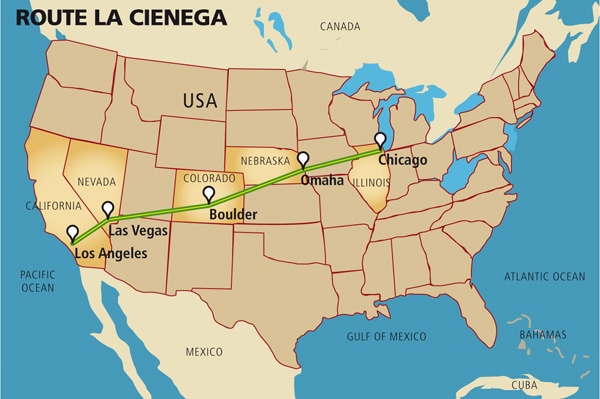
Across USA - The Call of the Road
The automobile and the USA it's been a long love affair. And what could be more American than a good old-fashioned road trip?
Road trip.” That’s all I needed to say to my friend Eileen. A week later, we piled into my 1986 Toyota Camry and headed out of Los Angeles. Destination: Home, Chicago, 2,112 miles away. The Camry was as old as I was — in fact, a mechanic had pronounced it incapable of making the trip — but there had been no question of whether I would take it with me.
The cult of the road trip in America boils down to this: We love our automobiles. A mere 8 percent of us don’t own a car. When automobiles first came out in the early 1900s, critics said it would be better to just get yourself a horse. But, as American political satirist P.J. O’Rourke has pointed out, the automobile did get a horse for everybody. My Camry was my horse, and I loved it deeply, for its automatic seatbelts, deep furry seats, cassette tape player, and the right-hand window that could only roll down halfway.
H. Nelson Jackson, a San Francisco doctor, was another American who really loved his car. In 1903, he bet his friends that he could drive his two-cylinder Winston Automobile (he called it “Vermont”) all the way across the country.
At that time, the only modes of travel were horses and railroads. No one had ever done a cross-country road trip before. He set off with a friend who doubled as a mechanic, and a dog named Bud. Vermont got a gas leak in Oregon. They had to drag the car at one point, get it towed by a horse at another. But 63 days later, Jackson smugly collected his $50 bet.
The Great American Road Trip as it exists today is bound to be an adventure. The weird people you meet and the heartland food, the changing landscape, the car troubles, figuring out maps and managing the little money you have. And singing along to the music, loud, the whole way.
We hoped to make it from LA to Chicago in three days. That is, if we made it at all. Neither of us said it, but I knew we both thought the Camry wouldn’t make it. So when we drove the first 270 miles from LA to Las Vegas without a hitch, we laughed, delighted to be wrong.







